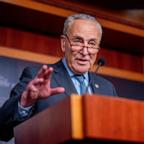What's 'broadband'? Billions in stimulus funds are at stake
— -- Congress has earmarked $7.2 billion in stimulus aid to deploy broadband in underserved parts of the USA. But what does that mean, really?
The Federal Communications Commission is trying to come up with answers. At the request of lawmakers, the agency is in the process of defining "broadband," "underserved" and other terms. The FCC is advising the National Telecommunications and Information Administration, which will make the final call on how stimulus money gets doled out.
The stakes are high for consumers and, ultimately, the U.S., says Chris Murray, a senior lawyer for Consumers Union.
"If we do it right, we can connect a critical segment of the U.S. population to the knowledge economy," he says, referring to the 40 million-plus consumers living in rural and low-income areas who don't have broadband. "If we do it wrong, we'll wind up giving money to companies that don't need it and won't use it efficiently."
On March 24, the FCC began accepting suggestions from the public about how to define broadband and four other terms: "unserved," "underserved," "non-discrimination" and "interconnection." (The last two relate to broadband networks.) Comments are due April 13.
Opinions about what constitutes "broadband" vary wildly. Big incumbents such as AT&T favor a tiered approach to the speed of data delivery, starting at a minimum of 200 kilobits per second. Tech giants such as Intel say 100 megabits is more reasonable, given the explosion of bandwidth-hogging applications such as video streaming.
Acting FCC Chairman Michael Copps says the agency is up to the challenge.
"In the final analysis, I hope we don't come down on the side of being too cautious ... because the higher the speed, the more value-laden the connection is for consumers," Copps says.
Copps says the FCC is keeping an open mind. But he also makes it clear that President Obama's long-term goal is driving broadband deep into America. "We're going for the future here."
Trying to define "underserved" could prove tricky. Big carriers such as AT&T argue that the presence of even one broadband provider is sufficient, regardless of the speed of service.




